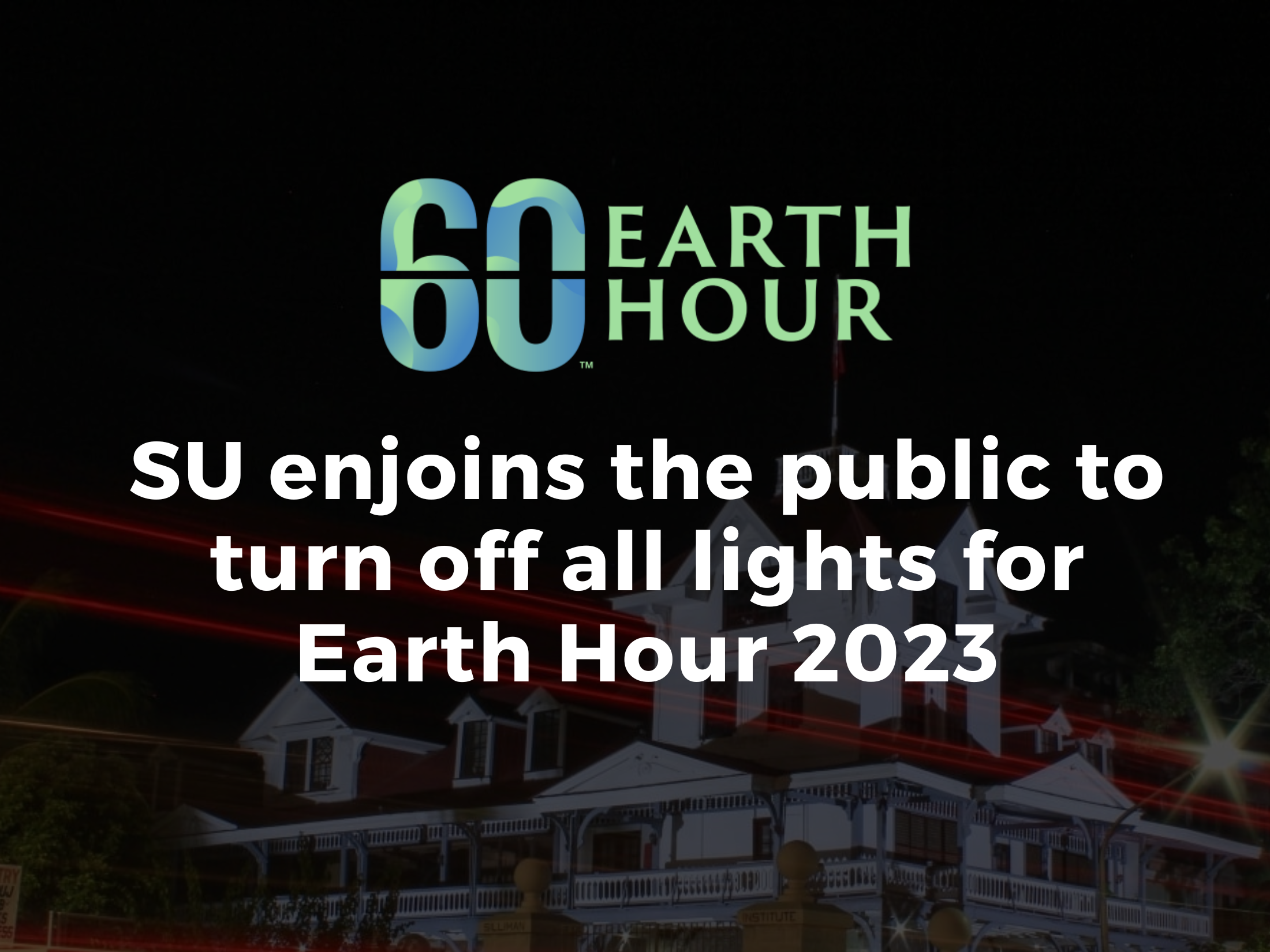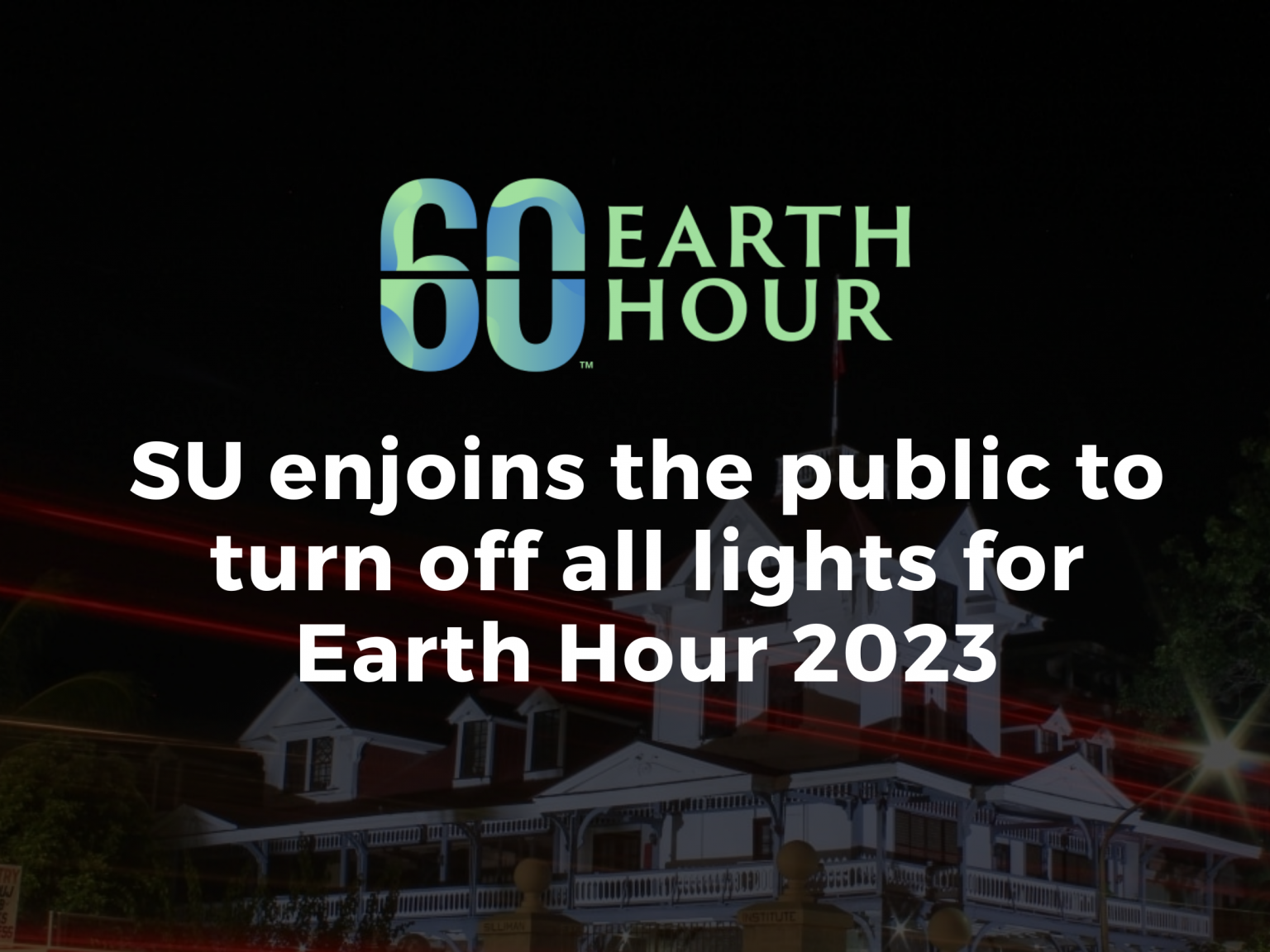
SU enjoins the public to turn off all lights for Earth Hour 2023
Silliman University (SU) invites everyone to join the observation of Earth Hour, with SU turning off all non-essential lights on campus for an hour from 8:30 to 9:30 p.m. on March 25, 2023.
Participation in Earth Hour shows commitment to addressing climate change, biodiversity loss, and environmental degradation.
“Silliman University has continued to participate in Earth Hour which entails, among others, the turning off of nonessential lights for an hour. It sends a message that everyone can be part of a collective action to deal with the climate crisis by a simple personal decision to lessen our carbon footprint. Observing Earth Hour is an act of unity and a commitment to our planet,” said Dr. Betty Cernol McCann, SU president.
The Environment Committee of the SU Student Government (SUSG) will also have an acoustic night in celebration of Earth Hour and Women’s Month on March 25, starting 8:00 p.m. at the Amphitheater.
Titled “Earth Hour: Tuning on the Spotlight on Women and the Environment,” the SUSG-led event aims to shed light on climate action, feminism, and the intersectionality of both through speeches and performances.
The event will also include the countdown for the turning off of lights on the SU campus for Earth Hour.
Earth Hour is a global movement led by the World Wide Fund for Nature (WWF) that aims to unite people in taking action on environmental issues and protecting the planet by engaging as many people as possible, starting with the act of turning off lights.
WWF-Philippines said in a press release on their website that the core message of Earth Hour is “going beyond the hour,” which are the “actions people can do after the lights go back on.”
SU has observed Earth Hour since 2008 when it initiated a city-wide observance of Earth Hour. Since 2010, SU has led in generating public support for Earth Hour in Dumaguete and Negros Oriental.
SU initiatives on environmental protection and conservation include its zero waste approach to waste management; use of renewable energy; implementation of the SU Environmental Principles, Policies, and Guidelines; and support for academic and student-led programs, projects, and research related to the environment, sustainability, and biodiversity.
Earth Hour started as a symbolic event in Sydney, Australia in 2007. Since then, it has become one of the world’s largest grassroots environmental movements with participation from over 7,000 cities and 193 countries and territories.

(Photo by Neil Ryan Famoso Sarana)


